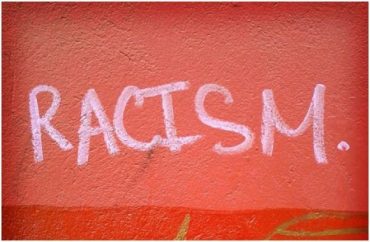
You may remember the sad story of Eric Garner, the man who was confronted by New York City police in 2014 for selling “loosies” (individual cigarettes), resisted officers, then died after being placed in (an illegal) chokehold.
Garner repeatedly gasped “I can’t breathe,” the statement of which subsequently was used by activists (including celebrities) in protesting police violence and demanding reforms.
Erica Garner, Eric’s daughter, tragically passed away from a heart attack last weekend at the young age of 27. However, Northwestern University adjunct Deborah Douglas says, “those who know racism kills in this country can’t be blamed for seeing another culprit here.”
Douglas writes in Vice that “experts and activists well-versed in the myriad ways race affects mortality in America were quick to cite the systemic shortening of black life in this country” regarding Ms. Garner’s death.
She first quotes the University of Texas at Austin’s kihana miraya ross:
When has racism not killed? […] Whether that’s in the form of outright murder as in the case of Erica Garner’s father, or health related or even black-on-black crime that stems from racialized capitalism, racialized housing disparities, and the numerous traumas both individual and collective that come from existing as the antithesis to everything pure, clean, and white—being raced as black has always killed us.
The next stop is a Boston University study whose lead researcher noted “Racism is a significant stressor in the lives of African-American women, and our results contribute to a growing body of evidence indicating that experiences of racism can have adverse effects on health.” (The study relied on self-reporting: “[Participants] provided information on their experiences of ‘everyday’ racism, like poor service in stores or restaurants, and ‘lifetime’ racism, which was discrimination encountered on the job, in housing and by police.”)
[…] racism has a devastating impact on longevity for black people—especially black women—in America, even when cops aren’t involved. Bridget Goosby, Ph.D., a sociologist at the University of Nebraska Lincoln, specifically cited heart problems among low-income black women, and higher rates of obesity and diabetes for those women as a whole. And for middle-class black women, being tokenized in mostly white work spaces can create social isolation, where hitting a special kind of “glass ceiling” is linked to discrimination that opens the door to chronic disease and shorter life spans. …
Pamela Merritt, co-director of Reproaction, a reproductive justice organization, told me activists like Garner are particularly susceptible to toxic stress. “When you’re navigating the world as a black activist, you work daily confrontation with white supremacy. There doesn’t seem to be a lot of oxygen for what liberals would call self-care. I prefer to call it ‘personal ecology.’”
Merritt found she needed to make some changes after attending a leadership training session in 2016. The overall feedback she got from white peers was they could tell she was stressed and riddled with anxiety.
“I shouldn’t have had to fake it,” Merritt, 44, told VICE. “That is a factor we need to talk about because it is going to kill us. How many times have I been in a room with activists who haven’t been to the doctor in a year, gotten their blood pressure checked, or wished they could exercise more? There’s this freakish rhythmic cycle of resistance.”
Yet, Merritt admits that keeping tabs on her health actually was fairly simple: “Last week, [she] got a mammogram and posted on social media that it was easy. ‘I wish I had tagged five people and said, ‘Do you want me to go with you?'”
MORE: ‘Microaggressions’ associated with racism in white college students
MORE: White racism behind Texas anti-sanctuary city bill
IMAGE: Andrew Gwozdziewycz/Flickr
Like The College Fix on Facebook / Follow us on Twitter





Please join the conversation about our stories on Facebook, Twitter, Instagram, Reddit, MeWe, Rumble, Gab, Minds and Gettr.